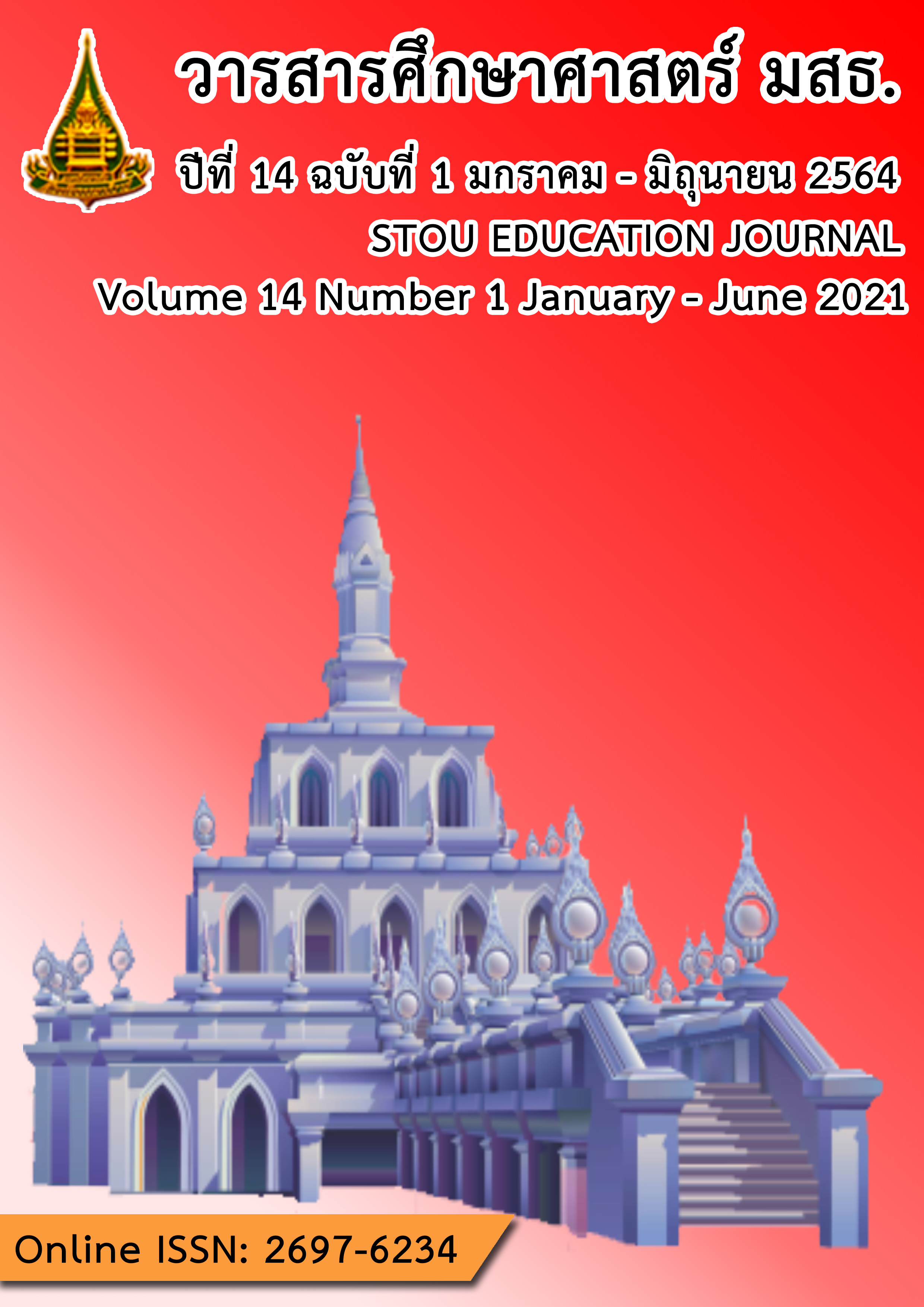Digital Kids Asia Pacific (DKAP) in Thailand
Main Article Content
Abstract
The objectives of this survey research were to 1) develop and validate the Thai version of the DKAP survey instrument to measure digital citizenship competencies in Thailand and 2) survey the baseline of Thai children’s digital citizenship competencies in an educational context. The research sample consists of 1,216 Mathayom Suksa 3 or Grade 9 students from schools under the Office of the Basic Education Commission, academic year 2019. A multistage sampling was used to obtain data from 15 schools in different regions of Thailand. Analysis data using descriptive statistics consisted of frequency, percentage age. mean and standard deviation. The validation of the tools consisted of construct validity using confirmatory factor analysis and internal consistency reliability using Cronbach’s alpha coefficient. The results were summarized as follow: 1) The Thai version of the DKAP survey instrument to measure digital citizenship competencies in Thailand has construct validity in all domains: digital literacy; digital safety and resilience; digital participation and agency; digital emotional intelligence; and digital creativity and innovation. Moreover, it also has high reliability in all domains( = 0.80 – 0.88). 2) The results of Thai children’s digital citizenship competencies in an educational context showed that the digital safety and resilience domain was the highest competency (M=3.34, SD=0.44), followed by digital literacy domain (M=3.12, SD=0.48); digital participation and agency domain (M=3.09, SD=0.47); digital emotional intelligence domain (M=3.07, SD=0.47); and digital creativity and innovation domain (M=2.84, SD=0.55) respectively.
Article Details
References
Černochová, M, & Selcuk, H. (2019). Digital literacy, creativity, and autonomous learning. In Tatnall, A.(Ed). Encyclopedia of Education and Information Technologies, 1-8. https://doi.org/10.1007/978-3-319-60013-0_205-1
Clemence, A. J., Hilsenroth, M. J., Ackerman, S. J., Strassle, C. G., & Handler, L. (2005). Facets of the therapeutic alliance and perceived progress in psychotherapy: Relationship between patient and therapist perspectives. Clinical Psychology & Psychotherapy, 12(6), 443–454.
Genner, S. & Süss, D. (2017). Socialization as media effect. In Rössler, P., Hoffner, C., & van Zoonen, L. (Eds). The international encyclopedia of media effects. Wiley Blackwell.
İlhan, M., & Çetin, B. (2014). Comparing the analysis results of the structural equation models (SEM) conducted using LISREL and AMOS. Journal of Measurement and Evaluation in Education and Psychology, 5(2), 26–42.
Kline, P. (2000). The handbook of psychological testing (2nd ed.). London: Routledge.
Livingstone, S., Haddon, L., & Görzig, A. (2012). Children, risk and safety on the internet:Research and policy challenges in comparative perspective. Bristol, Policy Press.
Royal Academy of Engineering. (2018). Cyber safety and resilience: Strengthening the digital systems that support the modern economy. Royal Academy of Engineering. Shin, T. S., Hwang, H., Park, J., Teng, J. X, &, Dang, T. (2019). Digital Kids Asia-Pacific insights into children’s digital citizenship. UNESCO.
UNESCO. (2016). A policy review: Building digital citizenship in Asia Pacific through safe, effective and responsible use of ICT. Bangkok: UNESCO, Asia and Pacific Regional Bureau for Education.


